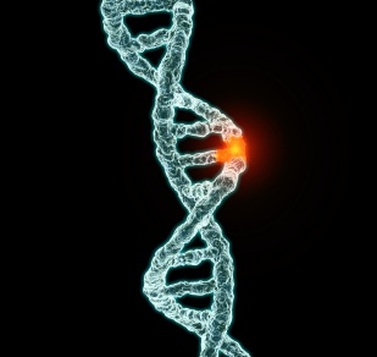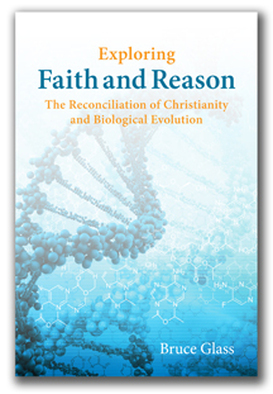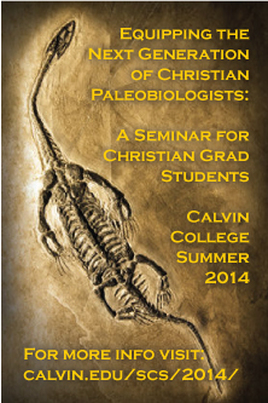Acts of God: Are all mutations random?
by Sy Garte
I have hitherto sometimes spoken as if the variations…were due to chance. This, of course is a wholly incorrect expression, but it serves to acknowledge plainly our ignorance of the cause of each particular variation. —Charles Darwin, Origin of Species We know that viruses can mutate to more lethal or more contagious forms. We have all been told to take the antibiotic for the full 10-day period, even if we start to feel better sooner. And we know that this is because the bacteria that caused the infection are not all killed right away, and that because of genetic variation among the bacteria, the most resistant ones will persist and flourish to cause new problems if we don’t zap them with the full dose. This is a good illustration of natural selection at work, the very same mechanism that drives evolution. And the key step, both for the kind of “micro evolution” whereby bacteria become resistant to a drug, and for the macro evolution whereby new species emerge from common ancestors, is mutation. The connection between health and evolution is not trivial. From bacterial infections to cancer, the immune system to virology, the very same fundamental biological mechanisms of genetic variation and natural selection that Darwin first elucidated are in operation. Standard Darwinian evolutionary theory is based on a two-step process, wherein mutations are produced in a random manner, allowing for the basis of inherited variability. The second step, the selection of variants with an advantage in fitness, is decidedly nonrandom, and is overwhelmingly dependent on the precise environmental conditions prevailing upon individual organisms. Thus, bacteria that have undergone a mutation in one or more transport genes, will not be able to incorporate the toxic drug, and therefore become resistant to its lethal effect. These lucky bacteria will continue to thrive in your lungs and nose, and will rapidly take over from their dead and dying, unmutated cousins. But, are we sure that this is really due to luck? In other words are all mutations, (whether they lead to drug resistance, or to new species) always and truly random chance events? The idea that Darwinian evolution by the process of natural selection is based, at least partially, on a random process of mutation has been of particular concern to many Christians. The random nature of one aspect of the mechanism for evolution might appear to be at odds with the concept of an omniscient God, who is actively engaged in His creation throughout history. The idea that all mutations, the driver of variation among organisms, is driven only by chance, is clearly a stumbling block in the acceptance of evolution by some Christians. This issue is connected with the larger question of teleology in evolution. Did God set up life with the innate capacity to evolve, and then hope for the best? Was man an inevitable result of evolution? Was God lucky that we emerged as creatures with the ability and desire to know and worship him? Or, is there a hidden purpose in the slow, meandering trail of increasing complexity that marks the evolutionary path from bacteria to slime molds, algae to conifers, worms to wombats, and apes to men? Even before the discovery of DNA as the genetic molecule, biologists were examining mutations in experimental systems of bacteria, to answer the question about purpose and chance in mutation production. Do bacteria tend to specifically mutate those genes that would help them survive an environmental stress, such as starvation or toxic drugs, or do they simply generate random mutations, and then selection chooses which ones allow for increased fitness? This is a complex question to be addressed experimentally, but Luria and Delbruck in the 1940s seemed to have answered it with an elegant system called fluctuation analysis. The results of these experiments were clear: mutations were random, and then selected for their relative fitness. From this arose what has been called the Neo Darwinian synthesis, with molecular genetics playing the key role in the production of phenotypic variation, and with a confirmation of the idea that purpose is replaced by chance in the mechanism of the first stage of evolution. This idea became engrained in the biological dogma, and as more and more data regarding the nature of genes and how they operate and change became available, the prevailing consensus grew stronger. Mutations are random, and there is no direction to how organisms change, other than the effects of post hoc selection based on relative fitness. Everything fit together well, and evolution became a theory that neither required, nor admitted to any degree of purpose or design. But the absence of evidence is not evidence (let alone proof) of absence. Occam’s Razor is, after all, a useful philosophical tool, but it is not a law of nature. The strict application of Occam’s razor to biology would lead us to get most of cellular biochemistry wrong. So, although we know that teleology is not required for evolution, there is also nothing to suggest that teleology is impossible. We should keep in mind that Darwin himself said nothing about whether the source of variation (mutations) was due to chance or not. As the quote above demonstrates, he simply had no idea, and more importantly, the distinction between chance and purpose really had no direct consequence on the general theory. In 1988, the biological world was rocked by a paper in Nature by John Cairns and his colleagues that presented data showing that bacteria could indeed produce more frequent beneficial mutations than expected in order to relieve severe stress imposed by experimental conditions. These beneficial mutations (now called stress directed mutations or SDM) were produced at rates up to five times higher than other mutations with neutral effects. While Cairns was not the first to report such findings, his paper seemed to take a major step away from the purely random concept for mutation. Since then, a large body of literature has confirmed and extended these conclusions. In addition, researchers have shed a great deal of light on the probable mechanisms by which bacteria seem to “choose” which genes to mutate for their own benefit. Several investigators have found evidence that SDM mutants in starving bacteria arise from different molecular mechanisms than ordinary mutational events. Stress leads to derepression of specific genes, whose functions are related to the stress. The resulting higher level of transcription of these genes allows for unpaired and exposed bases in loop structures, as well as DNA supercoiling, that are more susceptible to mutation. Researchers have also found possible roles for transposons (genes that jump around the genome) and plasmids (small pieces of DNA, loose in bacteria) in some instances of SDM. Hypermutability of specific stress-related genes, can result from a variety of environmental stressors, like starvation, temperature, or anaerobiosis (life sustained by an organism in the absence of oxygen). While a great deal of research into SDM remains to be done, (for example there is no data on SDM in “higher,” multicellular animals) the key point to be made here is less scientific than philosophical. The answer to the question of whether there is any evidence of teleology in the production of specific mutations by any organism is now clearly yes, regardless of what the mechanism responsible is. The results to date are sufficient to put to rest the concept that all mutations are always produced by purely random processes. Purpose is still purpose, whether it springs from the hand of God, the mind of man, or the genome of E coli. Those “lucky” bacteria that survived the onslaught of an antibiotic might be less lucky, and more skillful at producing the perfect mutation, than we used to think. So are there any implications from these scientific findings for a Christian perspective of Darwinian evolution? I would certainly think so. We cannot do the same experiments in animals as easily as we can in bacteria, but there are some approaches to look for evidence of past SDM during evolution in the genomes of various species, using the massive genetic data sets that are available. And if such evidence is found, we might see that non random mutations, purposeful changes in the DNA sequence, could be behind some of the more important evolutionary advances in the history of life. If that is true, then it isn’t too much of a stretch to postulate a divine role in evolution. The driver of both the mutational and selection phases of evolution would then be environmental change. This includes severe global change brought about by an asteroid impact, or by volcanism or plates shifting, or perhaps even more minor, local changes, such as those brought about in typical “Acts of God” like storms, floods, droughts, and so on. Stress directed (non random) mutations could be one way that God steps in to guide the process of biological progression during evolution, to advance his will, his goals, and his purpose. |






